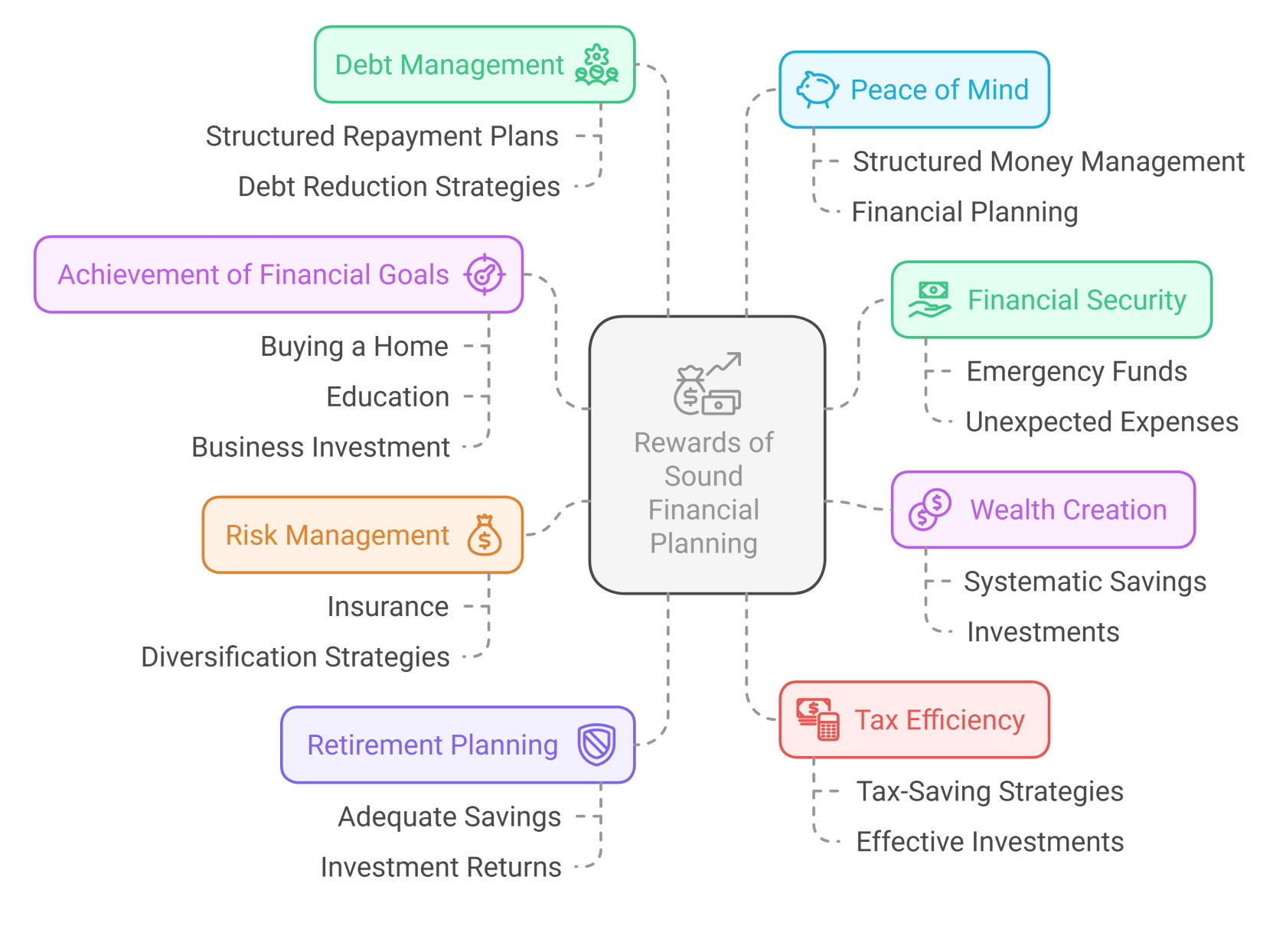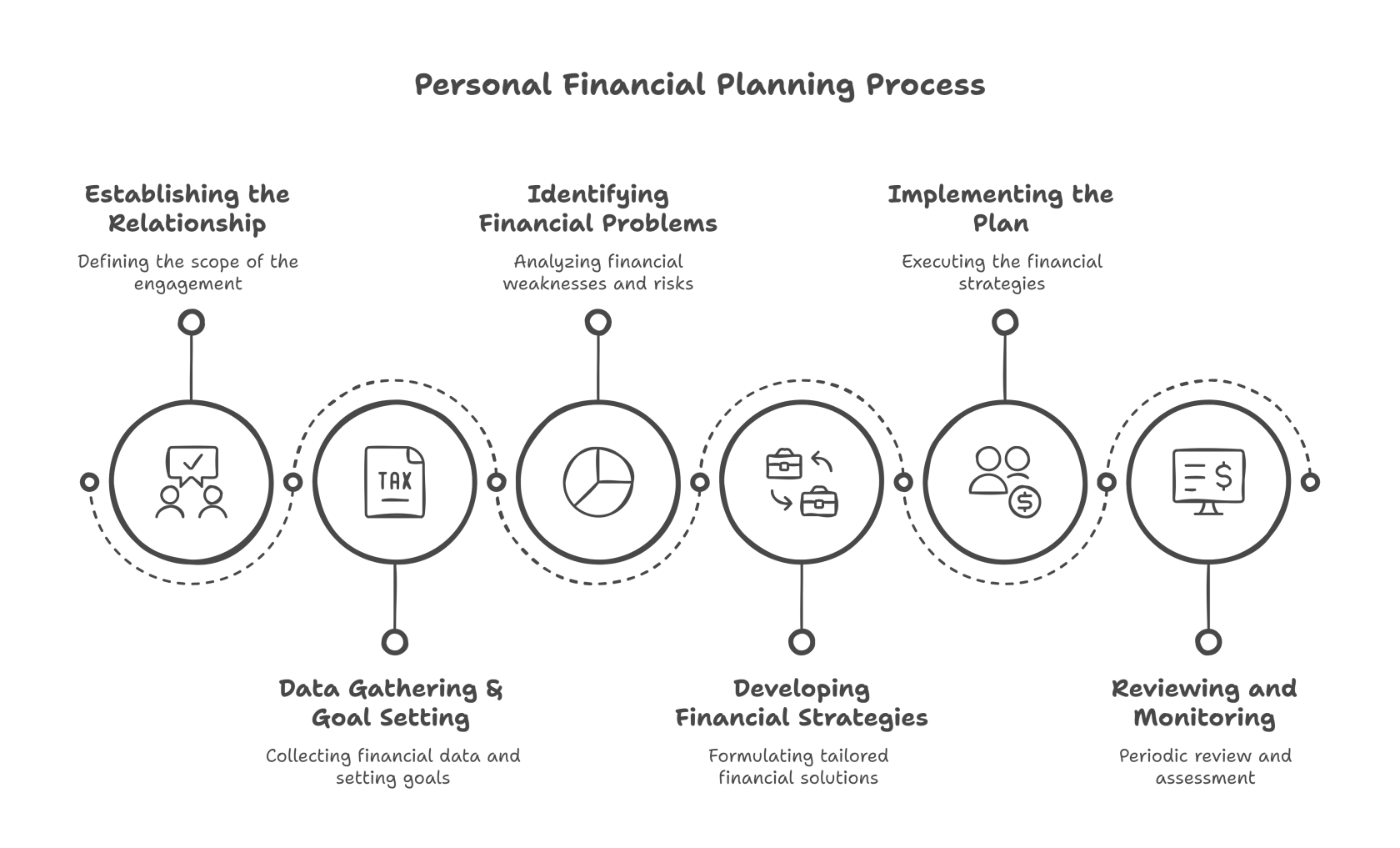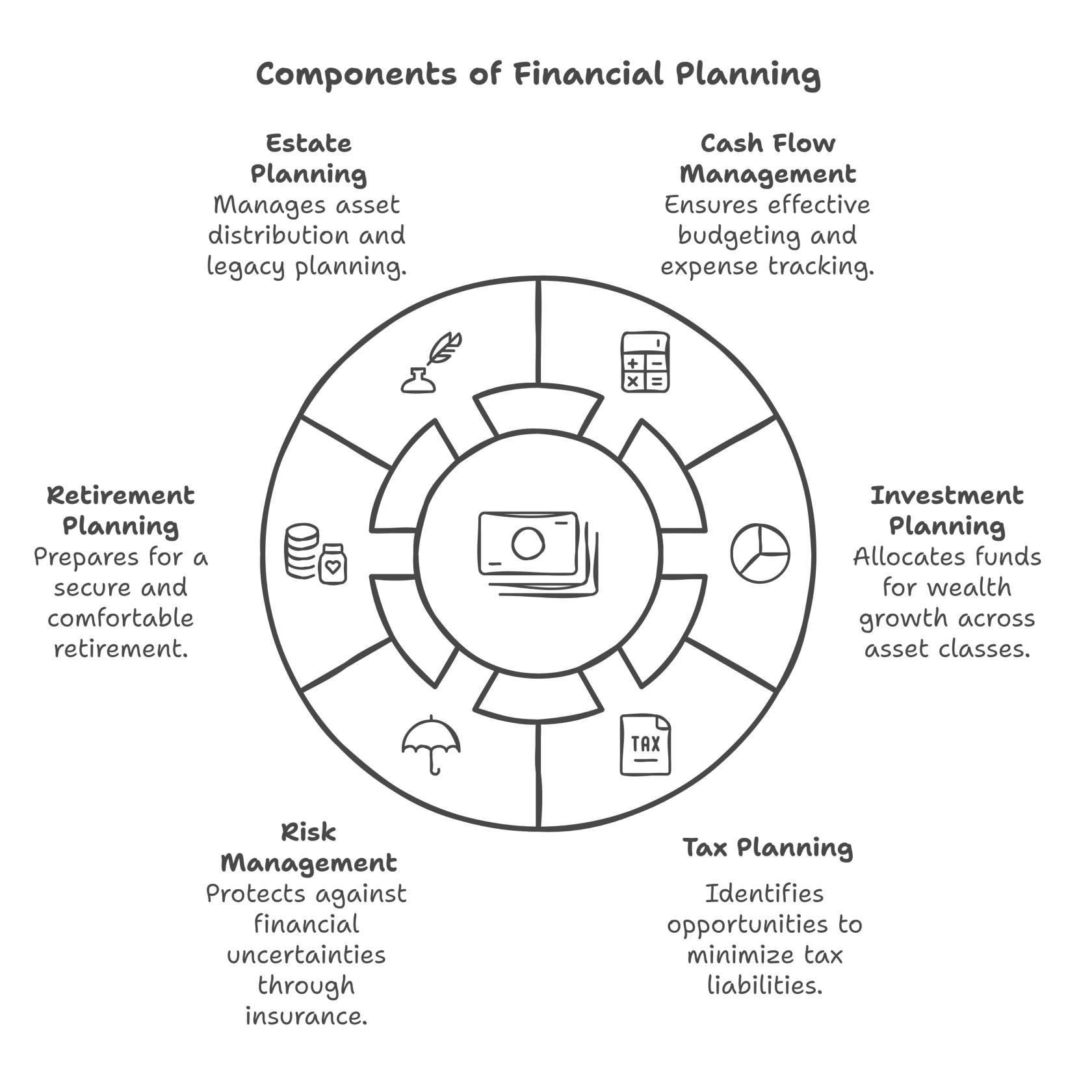Sound Financial Planning & Personal Financial Planning
Sound Financial Planning
Sound Financial Planning is the strategic process of managing finances efficiently to achieve personal and financial goals. It involves budgeting, saving, investing, tax planning, risk management, and retirement planning to ensure financial security and stability. A well-structured financial plan helps individuals optimize wealth creation, manage risks, reduce debt, and prepare for future financial needs, ultimately leading to financial independence and peace of mind.
Rewards of Sound Financial Planning
Financial planning is a strategic approach to managing one's finances to achieve short-term and long-term financial goals. A well-structured financial plan offers several benefits, ensuring financial security, stability, and growth.
| Reward | Description |
|---|---|
| Financial Security | Ensures that sufficient funds are available for emergencies and unexpected expenses. |
| Wealth Creation | Helps in building and growing wealth over time through systematic savings and investments. |
| Risk Management | Aids in mitigating financial risks by incorporating insurance and diversification strategies. |
| Retirement Planning | Secures a comfortable retirement by ensuring adequate savings and investment returns. |
| Tax Efficiency | Optimizes tax liabilities through effective tax-saving strategies and investments. |
| Debt Management | Helps in managing and reducing debt through structured repayment plans. |
| Achievement of Financial Goals | Aligns financial resources with personal goals, such as buying a home, education, or business investment. |
| Peace of Mind | Reduces financial stress by providing a structured approach to managing money. |
Personal Financial Planning Process
The personal financial planning process is a structured approach that helps individuals manage their finances effectively. It involves several steps to assess, plan, and implement financial strategies to achieve personal financial goals.
Six-Step Personal Financial Planning Process
| Step | Description |
|---|---|
| 1. Establishing the Relationship | The financial planner and client define the scope of the financial planning engagement, including responsibilities and expectations. |
| 2. Data Gathering & Goal Setting | Collecting information about the client’s financial situation, assets, liabilities, income, expenses, and setting financial objectives. |
| 3. Identifying Financial Problems | Analyzing financial weaknesses, risks, and challenges, such as debt issues, insufficient savings, or inadequate insurance coverage. |
| 4. Developing Financial Strategies | Formulating solutions and recommendations tailored to the client’s needs, including investment strategies, savings plans, and risk management measures. |
| 5. Implementing the Plan | Executing the financial strategies, which may involve investment allocation, insurance purchase, or setting up retirement accounts. |
| 6. Reviewing and Monitoring | Periodic review and assessment of the financial plan to accommodate changes in financial circumstances, economic conditions, or personal goals. |
Components of a Comprehensive Financial Plan
A well-structured financial plan includes the following key elements:
- Cash Flow Management - Budgeting and expense tracking to ensure effective financial control.
- Investment Planning - Allocating funds to various asset classes for wealth growth.
- Tax Planning - Identifying tax-saving opportunities to minimize tax liabilities.
- Risk Management & Insurance Planning - Ensuring protection against financial uncertainties.
- Retirement Planning - Preparing for a financially secure retirement.
- Estate Planning - Managing asset distribution and legacy planning.
Importance of Periodic Review
Financial planning is a dynamic process that needs periodic review due to:
- Changes in income levels
- Market fluctuations
- Inflation impact
- Tax law amendments
- Life events such as marriage, children, or job changes
By consistently following the financial planning process, individuals can effectively manage their wealth, mitigate risks, and achieve financial independence.




No Comments